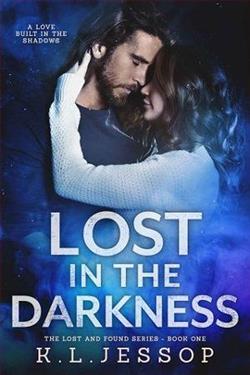Martial Peak Reviews
Lost in the Darkness by K.L. Jessop is one of those books that haunt you long after you've turned the last page. With its intricate characters and sumptuously dark atmosphere, Jessop masterfully weaves a tale of love, betrayal, and the inescapable grasp of the past. This novel not only delves into the complexities of human emotions but also offers a riveting narrative that keeps readers on the edge of their seats from start to finish.
The book follows the story of Julianne, a young woman struggling to piece her life together in the aftermath of a tumultuous relationship that left her emotionally scarred. Seeking solitude and a fresh start, Julianne moves to a seemingly idyllic, remote town. However, she quickly discovers that the shadows of the town conceal secrets darker than her own. The narrative elegantly shifts between the present and flashbacks, slowly unveiling the layers of Julianne’s painful past while revealing the twisted histories of the town’s inhabitants.
One of Jessop's greatest strengths in Lost in the Darkness lies in her ability to create vivid, multifaceted characters. Julianne is portrayed with such depth and vulnerability that it's impossible not to empathize with her. Her journey of self-discovery and healing is portrayed with a realism that speaks volumes about the author's understanding of human psychology. The supporting characters are equally well-crafted, each adding a distinct flavor to the story, enriching the main narrative and intertwining their own little tales with the central plot.
The setting of the novel plays a critical role in shaping the story’s dark tone. The town, with its fog-laden streets and the ever-present, oppressive darkness, almost becomes a character in its own right. Jessop's descriptive prowess brings this eerie setting to life, imbuing the story with a sense of foreboding that is palpable. This atmosphere not only heightens the suspense but also mirrors Julianne’s inner turmoil, making the setting an integral part of the narrative.
Moreover, the plot of Lost in the Darkness is meticulously crafted, with twists and turns that are unpredictable yet perfectly plausible. The pacing is deliberate, each chapter peeling back another layer of mystery, compelling readers to continue. However, it’s the emotional depth and the psychological complexity of the characters that truly propel the plot. The intertwining of Julianne’s personal growth with the sinister happenings in the town creates a multi-layered narrative that is both thrilling and moving.
Jessop also addresses themes of redemption, resilience, and the impact of the past on the present. These themes are explored not just through Julianne’s character but through the histories of other town residents. The universal struggle with personal demons and the desire for redemption is portrayed with sensitivity and insight, offering a poignant look at the human condition.
However, the novel is not without its minor flaws. At times, the detailed descriptions, while beautifully written, can slow down the narrative, potentially leading some readers to feel momentarily pulled away from the central action. Additionally, the complexity of the plot might feel overwhelming to those who prefer a more straightforward narrative. But these are small prices to pay for a story that is otherwise a masterful blend of suspense, horror, and human drama.
In conclusion, Lost in the Darkness by K.L. Jessop is a compelling novel that offers a deep, psychological exploration of its characters while maintaining the eerie suspense of a top-notch thriller. Jessop's ability to paint scenes with words and develop profound characters makes this book a must-read for those who appreciate psychological depth intertwined with their mysteries. The novel not only entertains but also invites readers to reflect on the darker corners of their own pasts, making it a profound narrative that resonates on multiple levels. As the boundaries between genres continue to blur, Jessop's work stands out as a beacon of the potential depth and complexity that modern fiction can achieve.








![(C94) [Sokuseki Maou (Bonkara)] Horror Night Nishizumi (Girls und Panzer)](/upload/pic/manga/c94--sokuseki-maou-bonkara--horror-night-nishizumi-girls-und-panzer.jpg)















Reviews 0
Post a Reviews: